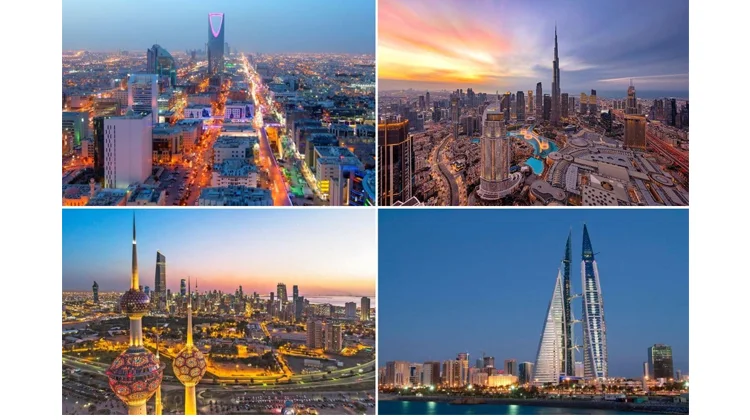The Gulf Cooperation Council’s (GCC) real estate sector has kicked off 2025 with impressive momentum, recording a staggering $78.2 billion in transaction value during the first quarter. This robust performance, indicating a growth of 20.5% to 22.3% compared to the same period last year, signals sustained confidence in the region’s property markets despite global economic headwinds. Interestingly, while Dubai remains the dominant force in terms of overall value, Abu Dhabi, Sharjah, and Ajman are emerging as the fastest-growing markets.
Dubai once again asserted its position as the leading real estate market within the GCC, accounting for nearly half of the total transaction value with $38.7 billion in sales. This figure represents a healthy 23.4% increase compared to Q1 2024, underscoring its continued attractiveness to investors and end-users.
However, the growth story extends beyond Dubai. Saudi Arabia emerged as the second-largest market, registering transactions worth at least $20.3 billion and capturing 26% of the GCC’s market share. The combined strength of the UAE’s emirates, including Dubai, Abu Dhabi, Sharjah, and Ajman, contributed a significant 65% to the total estimated transaction value across the GCC, highlighting the UAE’s pivotal role in driving regional growth.
While Dubai’s substantial volume commands attention, the smaller emirates of Abu Dhabi, Sharjah, and Ajman showcased the most significant year-on-year growth rates, signaling a dynamic shift in investment patterns.
- Abu Dhabi recorded the highest growth at an impressive 34.5%.
- Sharjah followed closely with a remarkable growth rate of 31.9%.
- Ajman also demonstrated strong momentum, registering a growth of 29%.
- Kuwait also posted notable growth at 24%.
This surge in the smaller emirates suggests a broadening of investor interest, potentially driven by factors such as attractive pricing, new development projects, and government initiatives aimed at diversifying their economies.
Abdullah Al Saleh, CEO of Sakan, a leading prop-tech and intelligence company in the GCC, noted that the region’s real estate sector recorded $383 billion in property transactions in 2024, marking a substantial 25% growth. He believes this upward trend is continuing into the first quarter of 2025, despite global economic uncertainties.
Al Saleh emphasized that real estate remains a “safe haven” for investors within the GCC and highlighted the increasing role of artificial intelligence in enhancing transaction efficiency. He anticipates sustained momentum in the property sector throughout the remainder of 2025.
It’s worth noting that while most GCC markets have released their Q1 results, data from Bahrain and Oman are still pending, and Sakan’s overall figures include estimates for these countries based on historical and projected data. The Q1 figures for Saudi Arabia are based on transactions from January 1 1st to March 25th.
The GCC real estate market’s strong performance in Q1 2025, reaching $78.2 billion, underscores the region’s resilience and attractiveness to investors. While Dubai continues to lead in overall value, the impressive growth rates in Abu Dhabi, Sharjah, and Ajman point towards a diversifying market with increasing opportunities across the smaller emirates. This broadening of growth, coupled with positive expert outlook, suggests a promising trajectory for the GCC real estate sector throughout the rest of the year.
Summary:
- The GCC real estate market recorded $78.2 billion in transactions in Q1 2025, a growth of over 20% year-on-year.
- Dubai led the market with $38.7 billion in sales, followed by Saudi Arabia at $20.3 billion.
- Abu Dhabi (34.5%), Sharjah (31.9%), and Ajman (29%) registered the highest year-on-year growth rates.
- Experts anticipate continued momentum in the GCC real estate sector throughout 2025, driven by investor confidence and technological advancements.

